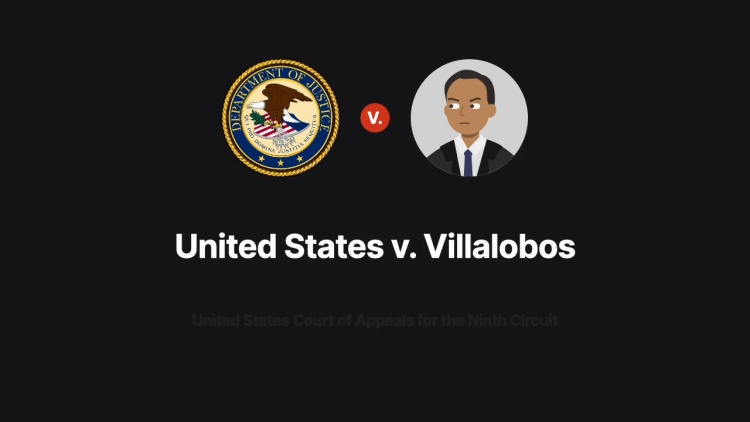United States v. Villalobos
United States Court of Appeals for the Ninth Circuit
748 F.3d 953 (2014)
- Written by Samantha Arena, JD
Facts
Rabbi Amitai Yemeni, the director of the Los Angeles Chabad Israel Center, was under investigation by the federal government for his role in a fraudulent work-visa scheme. Yemeni brought Israeli nationals to the United States and paid them as though they worked at the center, though they did not. Yemeni then personally collected the center’s payments back from the nationals. In 2009, the husband of Orit Anjel, one of the fraudulent workers, hired Alfred Nash Villalobos (defendant), a lawyer, to help recover the money Orit paid to Yemeni. Villalobos learned that the federal government was preparing to interview Orit as part of the Yemeni investigation. Villalobos approached Yemeni and Yemeni’s lawyer, Benjamin Gluck, demanding payment in return for Orit’s favorable testimony during Orit’s interview with the federal government. The United States government (plaintiff) subsequently charged Villalobos with attempted extortion under 18 U.S.C. § 1951(a), known as the Hobbs Act. At trial, the district court instructed the jury that all threats to testify or provide evidence for the investigation were wrongful under the act so long as Villalobos made the threats with the intent to induce or take advantage of fear. A jury convicted Villalobos, and he appealed, challenging the jury instruction and contending that the court inappropriately prohibited him from presenting a claim of right defense.
Rule of Law
Issue
Holding and Reasoning (Smith, J.)
What to do next…
Here's why 911,000 law students have relied on our case briefs:
- Written by law professors and practitioners, not other law students. 47,100 briefs, keyed to 997 casebooks. Top-notch customer support.
- The right amount of information, includes the facts, issues, rule of law, holding and reasoning, and any concurrences and dissents.
- Access in your classes, works on your mobile and tablet. Massive library of related video lessons and high quality multiple-choice questions.
- Easy to use, uniform format for every case brief. Written in plain English, not in legalese. Our briefs summarize and simplify; they don’t just repeat the court’s language.





